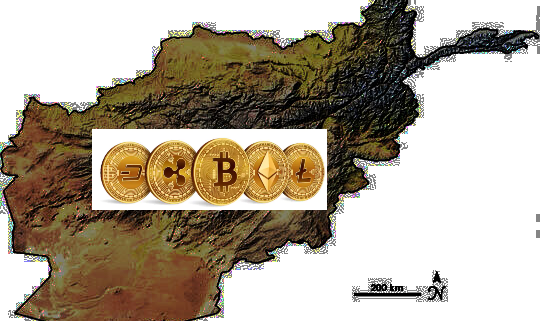Crypto Currency – A Blessing in Disguise for the Citizens of War-torn Afghanistan?
The citizens of Afghanistan have been caught in a perpetual war for more than a decade. In such an unstable economy with numerous internal and external stakeholders playing their respective tactics and games, the citizens suffer in multiple ways. One of the many issues is that the citizens are forced to swap their currencies to more stable ones such as the euro or US Dollar. In the recent Taliban takeover of Kabul, the cryptocurrencies have provided an option to hedge against the crisis, although only a tiny minority have taken this window. The digital assets in the form of various cryptocurrencies have provided citizens to carry at least a portion of their assets as they try to flee the Taliban rule.
Afghanistan ranks 20 in an index of 154 countries as per the 2021 Global Crypto Adoption. The rank further increases when one looks specifically for P2P transactions. This is in stark contrast to the previous trends, as Afghanistan witnessed a great improvement within 12 months. Chainalysis, a platform known to carry out studies and prepare indices about cryptocurrencies, had excluded Afghanistan due to negligible crypto presence, even as recent as 2020. Further, various data reveal that there is an increase in searches for “Bitcoin” and other cryptocurrencies before Kabul fell to Taliban.

Source: https://m.wsj.net/video/20210816/081621kabulairportv2/081621kabulairportv2_960x540.jpg
Although cryptocurrencies are one of the best options available to Afghans, the structure of blockchain technology may not be helpful to the masses barring a few in urban areas. Afghanistan, much like other developing countries has been largely dependent on physical cash. The uncertainty faced by the Afghan citizens has resulted in limited access to formal bank accounts, hence an active digital wallet is still seen as a niche area. Multiple factors contribute to this, such as electricity supply, access to computers or smartphones and most importantly a stable internet connection. As things stand, the lack of a proper authority guiding the Central Bank, chances of printing cash to bridge the shortfall is not seen as viable in Afghanistan, which ultimately increases the ordeal that the citizens are subjected to.
So how does having a digital asset such as cryptocurrency be beneficial?
An economic crisis can be triggered due to various reasons. For example, in the present situation, the Taliban capturing power by overthrowing Ashraf Ghani led to the economic downfall. An oppressive regime, a war-like situation along various sanctions and isolating the regime itself are some of the future possibilities. The people who were able to successfully flee the country could not withdraw their money as they were the victims of capricious decisions taken by a handful of people.
It is in such situations that a digital asset may be the most helpful. Although the owners of these “crypto-assets” may not be able to carry out direct transactions using them, they at least have their wealth secured amid vulnerable situations. The decentralized nature of blockchain technology enables self-custody while having the advantage of easily carry it anywhere without the need to take permissions. Thus, there is a need to spread the awareness of electronic money which is comparatively insulated from economic crises like the one Afghanistan is presently facing.

